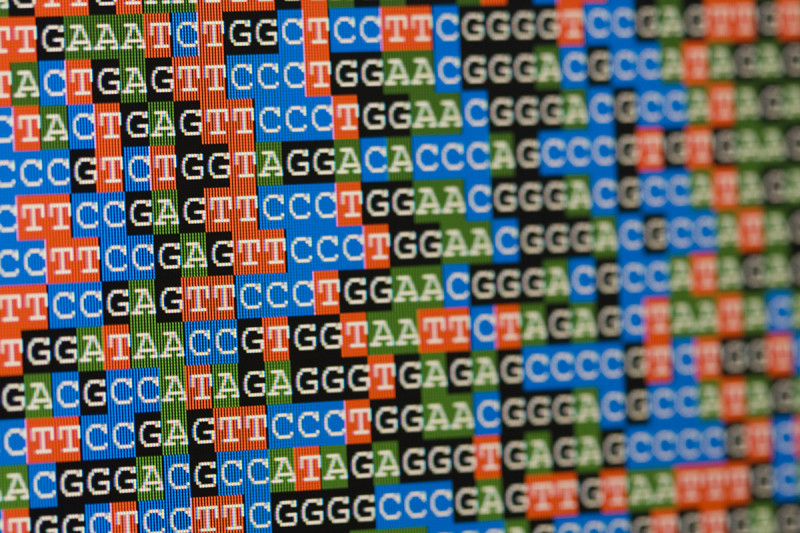
Even before President Barack Obama announced the National Cancer Moonshot Initiative last January, which called for more collaboration and data sharing among research institutions, Memorial Sloan Kettering and a group of other cancer centers had already embarked on their own data-sharing initiative. Called AACR Project GENIE, the program aims to boost precision oncology research by developing a registry of genomic and clinical information from cancer patients treated around the world.
On January 5, that group is announcing the release of its first batch of data: genomic sequencing information on tumors from nearly 19,000 cancer patients, linked to some information about their clinical care. This project will enable researchers to study the natural history of tumors with particular cancer-related gene mutations and how these mutations correlate with patient outcomes.
“Many of the mutations linked to cancer are rare, making it difficult for one institution to collect enough data to make statistically significant connections between a particular mutation and its role in causing cancer,” says MSK physician-scientist Charles Sawyers, who serves as Chair of AACR Project GENIE’s Steering Committee. “There is a great value for the institutions involved in this project in joining together and pooling the insights that we’re gaining from the sequencing of patient tumors.”
AACR Project GENIE — which stands for Genomics Evidence Neoplasia Information Exchange — was created and is being coordinated by the American Association for Cancer Research (AACR). Dr. Sawyers, a past president of AACR and Chair of MSK’s Human Oncology and Pathogenesis Program, helped to launch the effort.
Sharing Data to Accelerate Discovery
Advances in genomic sequencing over the past decade have resulted in a deluge of data about the molecular changes that are present in cancer cells, and researchers are just beginning to learn what all this information means. Which mutations are driving cancers, and which are just going along for the ride? Which mutations can be targeted with drugs that stop the growth of tumors and ultimately kill cancer cells?
In addition to providing important data on rare mutations, the initiative also is expected to offer insight into mutations and cancers that are more common. This is because researchers need large populations of patients to draw conclusions about the role these mutations play in the development of cancer and how it responds to treatment.
Connecting Data to Patients in the Real World
Earlier efforts, such as The Cancer Genome Atlas (TCGA), funded by National Institutes of Health, also have aggregated sequencing data from multiple institutions. These studies provided important evidence about which genes are most commonly mutated in a number of cancer types. But the information from TCGA comes from tumors at the time of the patient’s cancer diagnosis and does not include metastatic tumors. In addition, the TCGA dataset contains limited clinical information, and there is no mechanism for investigators to connect back to patients’ medical information to see how they fared after diagnosis.
The AACR Project GENIE database, uniquely, will allow investigators from around the world to ask questions about the link between genes, treatments, and outcomes. Already, the database includes information on 59 major cancer types, including data on nearly 3,000 patients with lung cancer, more than 2,000 patients with breast cancer, and more than 2,000 patients with colorectal cancer.
“This expands the universe of patients who are available for study because it includes all cancer patients sequenced at the member institutions, not just those sequenced at diagnosis or as part of clinical trials,” Dr. Sawyers explains. “Most patients in GENIE have metastatic disease and are undergoing sequencing to help identify new treatment options. Collection of tumor sequencing data of this type and scale, from patients in routine cancer care, has not really been done before.”
At MSK, sequencing is performed using MSK-IMPACT, a diagnostic test developed by MSK pathologists and other researchers that analyzes more than 400 known cancer-related genes in patient tumor samples.
One concern about this type of research has been maintaining patient privacy. The data in the AACR Project GENIE database has been anonymized, while still providing information about tumor type and baseline clinical information as well as the sequencing data. “This project is a prototype for how to convene institutions and overcome barriers about working together, including concerns about confidentiality,” Dr. Sawyers adds.
The data from this project are expected to make important contributions to the development of new drugs, Dr. Sawyers says. For example, if researchers know that there are mutations that contribute to the progression of a certain cancer, and there are already drugs in development that target these changes, it may help fast-track the clinical testing of those drugs by providing registries of patients that could serve as control populations for comparison.
MSK Takes a Leading Role
In addition to MSK, the seven other institutions involved are the Center for Personalized Cancer Treatment in the Netherlands, the Dana-Farber Cancer Institute in Boston, Institut Gustave Roussy in France, the Sidney Kimmel Comprehensive Cancer Center at Johns Hopkins University in Maryland, Princess Margaret Cancer Centre in Toronto, the Vanderbilt-Ingram Cancer Center in Tennessee, and the University of Texas MD Anderson Cancer Center. Each institution shares its data on tumor sequencing and the associated clinical records with the central registry.
“We were able to contribute the largest number of patients thanks to generous philanthropic support for the sequencing work,” Dr. Sawyers says, such as the Marie-Josée and Henry R. Kravis Center for Molecular Oncology, which coordinates many of MSK’s molecular oncology efforts.
Researchers are just beginning to scratch the surface of what kinds of insight the data can provide. Dr. Sawyers expects the first studies to look at overall trends rather than specific individual mutations. Even with these initial studies, he says, letting this GENIE out of the bottle will no doubt guide the future direction of molecular oncology research for years to come.






